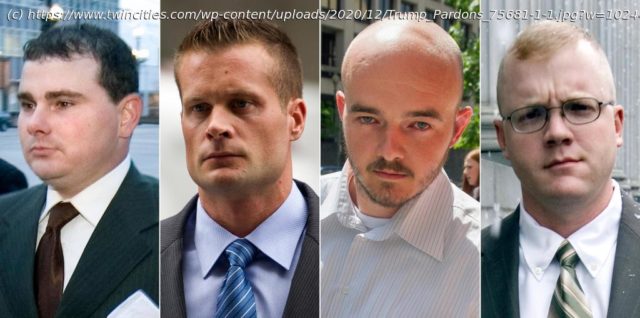WASHINGTON (AP) — The courtroom monitors carried the image of a smiling 9-year-old boy as his father pleaded for the punishment of four U.S. government contractors convicted in shootings that…
By ERIC TUCKER and ELLEN KNICKMEYER WASHINGTON (AP) — The courtroom monitors carried the image of a smiling 9-year-old boy as his father pleaded for the punishment of four U.S. government contractors convicted in shootings that killed that child and more than a dozen other Iraqi civilians. “What’s the difference,” Mohammad Kinani al-Razzaq asked a Washington judge at an emotional 2015 sentencing hearing, “between these criminals and terrorists?” The shootings of civilians by Blackwater employees at a crowded Baghdad traffic circle in September 2007 prompted an international outcry, left a reputational black eye on U.S. operations at the height of the Iraq war and put the government on the defensive over its use of private contractors in military zones. The resulting criminal prosecutions spanned years in Washington but came to an abrupt end Tuesday when President Donald Trump pardoned the convicted contractors, an act that human rights activists and some Iraqis decried as a miscarriage of justice. The news comes at a delicate moment for the Iraqi leadership, which is trying to balance growing calls by some Iraqi factions for a complete U.S. troop withdrawal from Iraq with what they see as the need for a more gradual drawdown. “The infamous Blackwater company killed Iraqi citizens at Nisoor Square. Today we heard they were released upon personal order by President Trump, as if they don’t care for the spilled Iraqi blood,” said Saleh Abed, a Baghdad resident walking in the square. The United Nations’ Human Rights office said Wednesday that it was “deeply concerned” by the pardons, which it said “contributes to impunity and has the effect of emboldening others to commit such crimes in the future.” The Iraqi Foreign Ministry said the pardons ”did not take into account the seriousness of the crime committed,” and that it would urge the U.S. to reconsider. Al-Razzaq, the father of the slain boy, told the BBC that the pardon decision “broke my life again.






